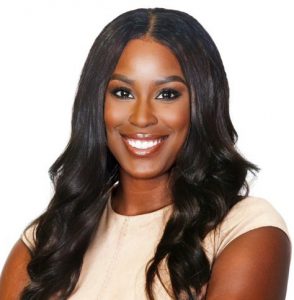Currently, there is a grand total of five generations in the workforce — with Millennials making up the majority of the current workforce, and members of Gen X holding 51% of leadership roles. By 2025, Gen Z will comprise nearly 30% of the workforce. In order to have a harmonious work environment, it is essential that talent leaders make a conscious effort to create a workplace that is inclusive of workers of all ages.
In a Talent Talk we hosted in partnership with Symba, we invited two recruitment professionals — Vanesa Dougherty of Capital One and Elizabeth Diley of General Mills — to share their insights how D&I strategies can support a collaborative, multi-generational workplace.
Watch the full recording here, and continue on for highlights from the discussion.
Encourage Mentorships and Collaboration
One way to promote a collaborative multi-generational work environment is to offer employee mentorship programs — which stands to benefit both parties. Younger employees who are new to the workforce will gain valuable insights from their more experienced coworkers, but older employees can also learn from young professionals’ fresh perspectives.
Create Opportunities for Employees to Build Affinity
In addition to facilitating mentorships, you can encourage employees of all ages to get to know each other through in-person events, round tables, and team-building exercises. Building camaraderie in the workplace can ensure a cohesive multi-generational workplace where everyone feels welcomed.
Although in-person networking opportunities may feel more engaging, offering remote networking channels is vital, especially to ensure a more inclusive environment for all workers. To successfully engage remote employees, consider implementing digital employee resource groups or planning remote networking events.
Avoid Making Assumptions
Although understanding each generation’s lived experiences and priorities is helpful, it’s also important to avoid making assumptions based on someone’s age. Instead, make an effort to get to know each candidate or employee as an individual and listen to their feedback, ideas, and professional goals.
When interviewing candidates, it’s especially crucial to check for unconscious biases. Our panelists emphasized the importance of asking the right interview questions, ensuring that young candidates are asked to share more than just their GPA but also their life experiences and passions. For candidates returning to the workforce after a long absence, consider the skills they’ve learned during their time away from the workforce.
Celebrate New Perspectives
Multi-generational workforces can benefit companies significantly, as different generations offer diverse perspectives. By hiring professionals of all ages, you can develop a more well-rounded product or service, depending on what your company provides.
In addition to offering new perspectives on company strategies, multi-generational team members can also bring positive change to company policies. For instance, RippleMatch has found that members of Gen Z are champions of flexible work and affordable health care. They also value mental health resources, an area that has been overlooked in previous years.
Prepare Managers to Lead Multi-Generational Teams
One of the biggest challenges of running a successful multi-generational workforce is ensuring managers receive training to lead teams of all ages, especially those filled with employees much older than themselves. More than 84% of employees quit their jobs due to bad managers, so it’s crucial to educate managers and provide them with the tools to effectively lead a multi-generational team. This training can include information on working styles, communication tactics, and the different priorities of working generations.
As you can see, a one-size-fits-all approach in the workplace will not cut it when building a successful multi-generational workplace. To truly inspire your team to collaborate on projects, properly manage and mentor each other, and connect on a personal level, you’ll have to provide training and activities that allow for growth and a better understanding of each worker. To follow the full discussion for more advice, watch the recording.
















